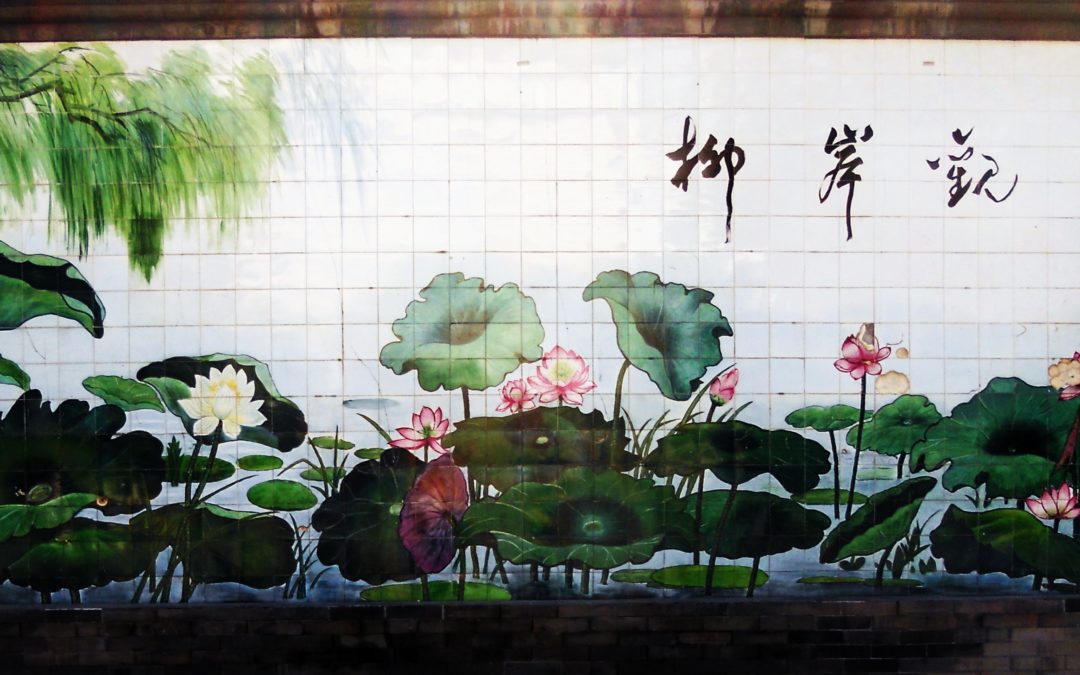A country’s greatest treasure is its people, but it takes patience to uncover this often hidden gem. They say that patience is a virtue, but for the international traveler, it can be hard to hold onto when immersed in a culture so different than your own. When I travel abroad, I see myself as an ambassador representing my country, and I try extra hard to be polite and patient, given our moniker the “ugly American.” But I’m also human and have moments when I fail to live up to my self-appointed task.

China is a lesson in patience. On the surface, this country seems like a giant out of control. Everywhere, a new China collides with the traditional one. Air pollution obscures the skies. Drivers either don’t know or ignore traffic laws. Homogenous, sullen faces crowd marketplaces and historic sites. From the surge of its expanding population, to massive traffic jams, to the rapid growth of construction, it would be easy for a Western visitor to feel put off or even afraid when traveling here.

When I was in Beijing, masses of people in the Forbidden City, Summer Palace and Great Wall flowed like rivers. You had to be careful not to drown in the undertow of humanity. On first encounter, no one smiled. They didn’t seem very welcoming to Westerners. Our guide explained that Chinese people are not accustomed to smiling in public.

Salespeople in China are aggressive and can try a tired tourist’s patience. I grew irritated with the constant assault of vendors at every historic site. During a pedicab ride in a Beijing hutong (traditional neighborhood), a man rode up beside us on a bicycle and chatted us up in a friendly manner. Once he had our attention, he pulled out a fake Rolex watch and offered, “Rolex. Two for five dollar!” We laughed at the absurdity. We would never have guessed why he wanted to talk with us.
The Silk Street Market in Beijing was the worst. This place had been a popular open air market until the government outlawed open air markets. But it didn’t shut down. It moved under a roof in a new multi-story building jam-packed with little booths full of cheap trinkets, knock-off designer labels, electronics and everything else you could imagine. Our guide warned us to be careful. The salespeople there are uber aggressive. Don’t look at them, or they’ll follow you.
At first, I was scared to go in. I walked by row after row of booths and hardly looked sideways. Then something caught my eye— a carved “jade” dragon. My mistake. The salesperson was right on me with his calculator. “How much you want, miss? I give you best price.” As I walked away, he followed me and shoved his calculator in my face, trying to get me to punch in the price I wanted to pay. I kept walking.
Some of the salespeople grabbed my arm, if they thought I had even a passing interest in something. “Gucci! Give you best price!” I got brave and intentionally looked at things I had no interest in. I became the Pied Piper, with a trail of salespeople behind me.
Later, I thought about the lives these people lived. They must certainly be under a great deal of pressure to sell big or lose their jobs. A few days later on a flight from Shanghai to Beijing, I sat with a Chinese businesswoman, who had grown up in Beijing, lived in Southern California for a few years, then returned to China to live and work in Shanghai. I asked her about the Silk Street Market salespeople. She told me they make a lot of money. Perhaps so, but are they happy? Maybe it’s like playing Black Jack in Las Vegas. There’s a level of satisfaction in winning.
For me, the most precious moments in China were the ones I never anticipated, the ones that took time to reveal themselves. Certainly it’s helpful to have a local guide to translate, but I found that a smile and a couple key words in Mandarin can go a long way in warming up China’s seemingly icy acceptance of Westerners.
There were security guards at every airport, museum and attraction we entered. They were always stern and serious as they searched our bags (and sometimes us) before waving us through. I established a routine with these guards and got a surprising reaction. Step one: I greeted them with “nǐ hǎo” (“hello” in Mandarin). Their expressions didn’t change as they searched me. Step two: When they finished and waved me through, I said “xièxiè” (“thank you” in Mandarin). Almost without exception, my thank you in their language elicited a smile. Step three: I smiled back.
Since Beijing is the center of government and cultural history, Chinese citizens who have recently acquired the affluence (and cars) to allow them to travel, come to Beijing from surrounding provinces to visit the places of their heritage. They’re not accustomed to seeing Westerners. Those of you who have seen photos of me (or know me personally) know I have long blond hair and blue eyes. This is a real anomaly for the Chinese, many of whom have never seen a person who looks like me. (NOTE: We later visited Shanghai, which is quite different from Beijing and Xi’an. It’s more cosmopolitan, more accustomed to Western visitors, as China’s hub for international business.)

While I was touring the Summer Palace near Beijing, three Chinese women, presumably from the provinces, followed me around. One of the ladies kept asking me something in Mandarin. I finally figured out they wanted to take a picture with me. I stood between two of the women as the third one took our picture. Then I gave her my camera, so I could have a picture of us, as well. Here I am with windblown hair and dressed in a puffy jacket to keep the chill away. After the photo session, the ladies smiled and waved vigorously as they departed. I imagined they returned home and regaled their friends and family with the tale of meeting a yellow-haired American in Beijing.
I had a similar reaction when our tour group was on a shuttle going to the airport in Xi’an. One of the ladies in my group told me I was causing quite a stir in the bus next to us. I turned and discovered the eyes of dozens of school girls on me. I smiled and waved at them. They burst into excited laughter and waved back.
 One morning while in Beijing, our tour guide took us to Tiantan Park in the heart of the city. This park is primarily known for the Temple of Heaven complex, a historic Taoist temple that is a UNESCO World Heritage Site.
One morning while in Beijing, our tour guide took us to Tiantan Park in the heart of the city. This park is primarily known for the Temple of Heaven complex, a historic Taoist temple that is a UNESCO World Heritage Site.
Every morning, about 20,000 locals go to the park for exercise and socializing. They dance, play Jianzi (similar to Hackysack but with a shuttlecock), board games and cards, do gymnastics, play music and sing.
After we viewed the Temple of Heaven, we made our way back through the park and came upon a small brass band playing traditional music. A group of people had gathered around and were singing with the band.
I used to be a singer and did a lot of choral work in my younger years, so it’s hard for me to resist singing with a group. I joined in and sang in full voice. Though I didn’t know any of the songs, I was able to follow the tunes, and I caught onto the Mandarin lyrics a split second after each syllable was sung. Two young women in the crowd smiled at me. They motioned for me to join them and shared their sheet music. Of course, it was in Mandarin. But it didn’t matter that I couldn’t read the words. The sentiment was plain. No matter what language you speak, we all speak the language of humanity. They welcomed me into their group, regardless of my culture… and theirs.

Though it was October, the faded blossoms of the Lotus flower could still be seen in many of the water gardens throughout Beijing and in the Summer Palace along the lakeshore. The Lotus flower is a fitting symbol for China and its people.
This beautiful flower has many meanings in Chinese culture. For some, it’s a divine flower that grows from mud yet remains pure; its unfolding petals are seen as the expansion of the soul, pure and uncontaminated. For others, it represents spontaneous generation and rebirth. Still others see it as the flower of fortune.
For me, the Lotus has a more contemporary meaning. It’s a metaphor for the hidden beauty inside the Chinese culture, the treasure that reveals itself to you only if you remain patient and wait for it to unfold.
It’s also a symbol of a blossoming country, one that’s been reborn and is opening so fast it doesn’t yet know who it is and how it will deal with this rapid change. The minds of the people are evolving, as well. They’re being exposed to foreign influences, have acquired a new-found affluence that helps them connect to new ideas and are curious about the rest of the world.
A Lotus flower in full bloom represents ultimate enlightenment and self-awareness. China, like the Lotus, is blossoming. We’ll have to be patient and wait for this flower to open to its fullest expression in the world community.


